Self Drilling Rock Bolt, An Economic & Efficiency Method to Support Fractured Rock Mass
Time:2024-01-12From:sinorock View:
Nowadays, in many excavation construction projects, we need to support or stabilize the roofs, foundations, slopes or other structures. The most common support system or method used for these projects is self drilling anchor rock bolt. It is more economic and efficiency than any other conventional methods, such as solid bar, anchor line, casing. Now, Let Sinorock show you how self drilling anchor rock bolt save your money and time.
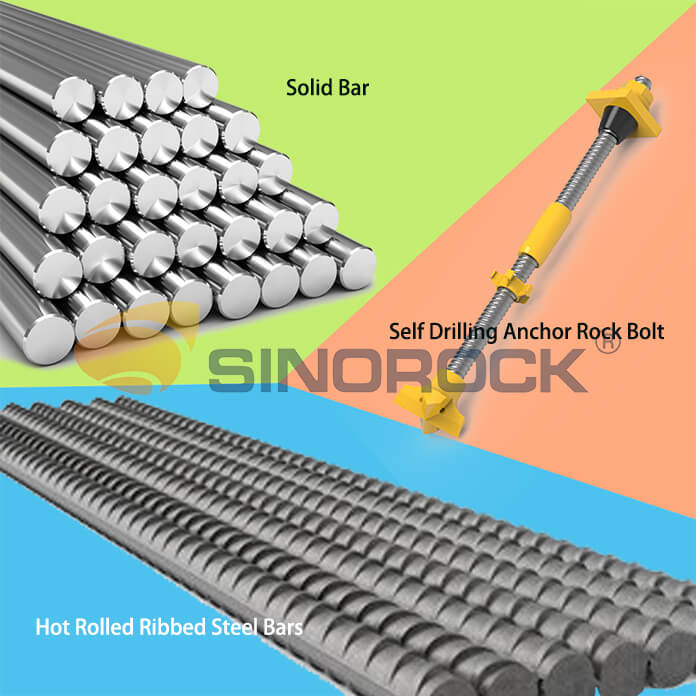
Self Drilling Anchor Rock Bolt Structure/Components
There are six primary parts that construct a complete self drilling anchor rock bolt. They separately are a sacrificial drill bit, a fully threaded hollow steel bar, a coupler to continue the hollow steel bar if necessary, a plate and a nut to transmit the force from rock mass, a centralizer to ensure the hollow steel bar being at the central position of the drilling hole, and an alternative shank is required if the drilling rig has the percussion function.
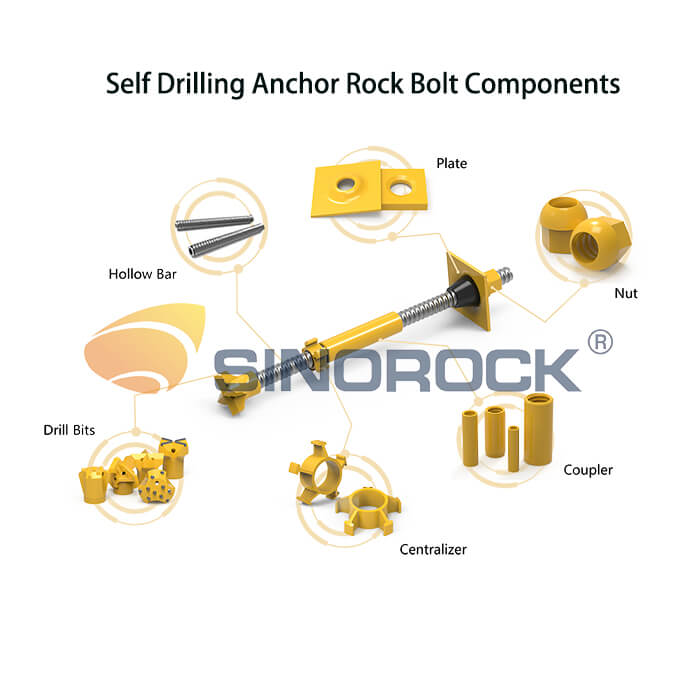
Self Drilling Anchor Rock Bolt Types
According to the way in which the self drilling anchor rock bolt is threaded, we divide the rock bolts into two types, R thread and T thread.
The surface of R type rock bolt is fully rope threaded, which meets the ISO 10208.
The thread of T type rock bolt contains two parts. One part is flat, the other part is embowed. The special design of T thread will increase the anchoring force.
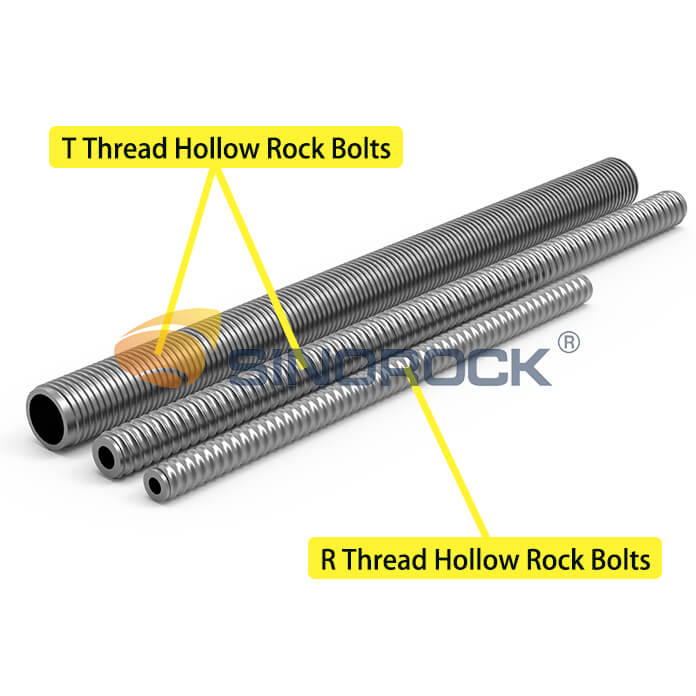
Self Drilling Anchor Rock Bolt Installation Procedure
2~3 people are enough to process the whole installation procedure of the self drilling anchor rock bolt. Please see below.
Preparation
Do some checking, including if the drilling rig works, whether anchor body is unblocked, and so on.
Select a proper drill bit according to the following factors: service life, maximum length of anchor body, geological condition, geometry.
Drill and Grout Simultaneously
Connect the grouting pipe with the rotary grouting adapter and open the grouting machine, it will automatically simultaneously grout when drilling.
This is the feature of self drilling anchor rock bolt differing from other traditional solid anchor bar. It is no risk of hole collapsing when drilling in the unstable rock and soil mass.
Extend Anchor Body
With the coupler, it is possible to extend the anchor body to meet the required drilling depth. All you need to do is just screwing the coupler on the end of an anchor body by your hand.
Install Plate and Nut
After the slurry curdles, install the plate and nut.
Self Drilling Anchor Rock Bolt Anticorrosion Method
During application, the biggest influence on the service life of rock bolt is the corrosion of surrounding environment, so it is especially important to have anti-corrosion rock bolts.
Sinorock has 3 types of anticorrosion self drilling anchor rock bolts, Hot-dip Galvanized Rock Bolt, Epoxy Coated Rock Bolt, and Duplex Coated Rock Bolt, which are used to adapt to different conditions.
Hot-dip Galvanized Rock Bolt
Suitable for geotechnical engineering applications where longer service life is needed and the surrounding environment is complex, such as roads, railways, hydro-projects and other buildings that may be affected by seawater.
Epoxy Coated Rock Bolt
Mainly used in industrial and civil construction, general structures and roads, bridges, ports and docks in humid or corrosive media.
Duplex Coated Rock Bolt
It is a combination of hot-dip galvanizing and epoxy coating. It is commonly used in the permanent support of hydro-projects, underwater tunnels, subway tunnels and some important buildings affected by groundwater for a long time. And it is also widely used in harbors, wharfs, offshore buildings that are corroded by seawater.
By the way, all range of rock bolts and accessories can be dealt with this anticorrosion method.
Self Drilling Anchor Rock Bolt Application
Self-drilling anchor rock bolt is mainly used for tunnel and underground engineering, slope engineering, ground and foundation engineering. It can be used for pre-construction support and can effectively enhance the stability of soil and rock mass.
Tunnel and Underground Project
Tunnels and Underground mines are the most common situation where self drilling anchor rock bolts are used. High pressure grouting is achieved through the hollow bar to strengthen the soil or rock mass to ensure the surface stability. According to the types of support in the tunnel, it can be divided into radial support, tunnel-face support, locking the foot support and reinforcement of the tunnel portal.
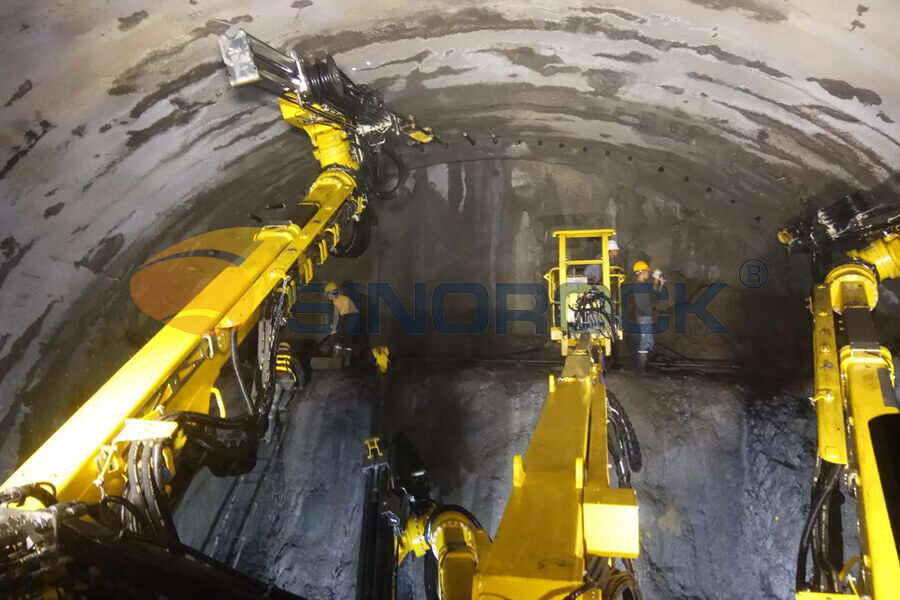
Slope Stabilization Project
In slope stabilization projects, self drilling anchor rock bolt can be used as soil nails, slope protection barrier, falling rock protection, retaining wall, embankment stability, roadbed reinforcement and other different application scenarios.
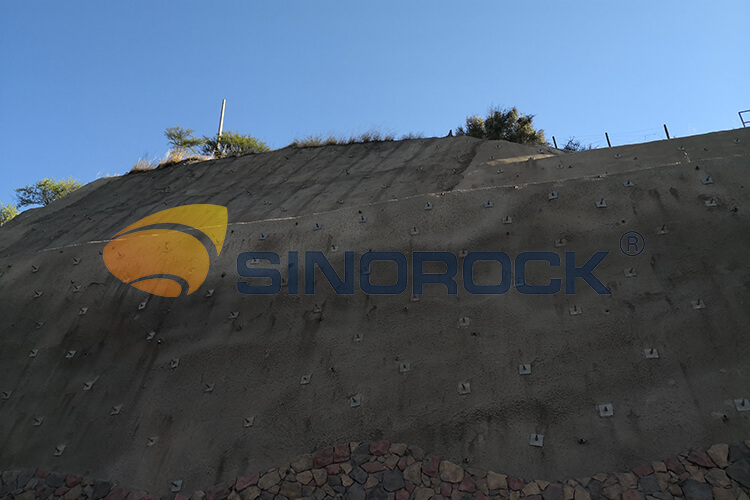
Ground and Foundation Project
Self drilling anchor rock bolt is mainly used for micro pile. Pressure, tension or periodic loads can be transferred to the surrounding soil, transferring structural loads to the underlying foundation structure and limiting the deformation of the building. In these projects, it can be used as new building pile foundation, existing building structure repair, tower foundation, bridge reinforcement, soundproof wall foundation, protective screen pile foundation, anti-floating pile foundation, retaining beam anchoring and other different structures.
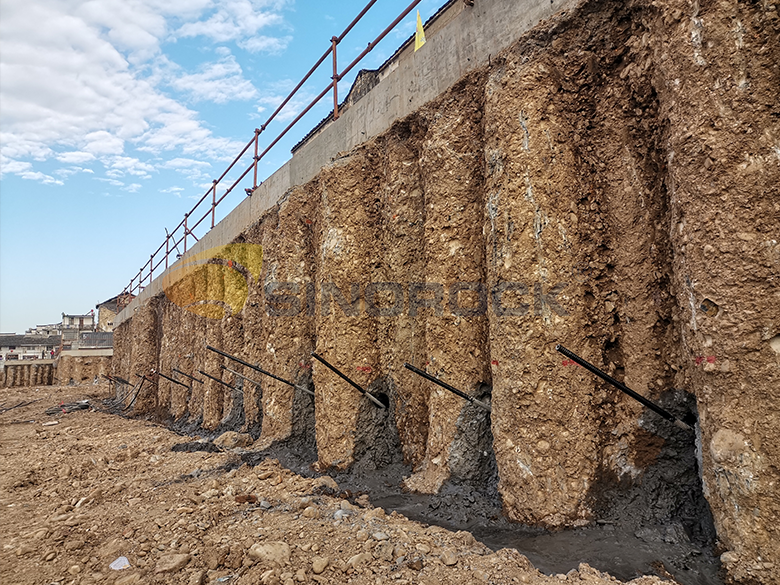
Advantages of Self-Drilling Anchor Rock Bolts
Self-drilling anchor rock bolts offer several advantages over conventional methods, making them a preferred choice in excavation construction projects. These advantages contribute to their economic efficiency, time-saving capabilities, and enhanced structural support. Let's delve into the key advantages of self-drilling anchor rock bolts.
1. Streamlined Structure for Enhanced Performance
The self-drilling anchor rock bolt comprises six essential components, each serving a specific function. The sacrificial drill bit, fully threaded hollow steel bar, coupler, plate, nut, and centralizer work in tandem to provide comprehensive support. This streamlined structure ensures optimal performance in various geological conditions.
2. Versatile Thread Types for Diverse Applications
Self-drilling anchor rock bolts come in two primary thread types: R thread and T thread. The R type features fully rope-threaded surfaces, meeting ISO 10208 standards. On the other hand, the T type, with its flat and embowed thread design, enhances anchoring force. This versatility allows for tailored solutions based on project requirements.
3. Efficient Installation Procedure
The installation of self-drilling anchor rock bolts is a straightforward process, requiring only 2-3 people. The simultaneous drilling and grouting feature sets them apart from traditional solid anchor bars, eliminating the risk of hole collapsing in unstable rock and soil masses. The inclusion of a coupler facilitates easy extension of the anchor body to reach the desired drilling depth.
4. Effective Anticorrosion Methods for Extended Service Life
Sinorock offers three anticorrosion methods for self-drilling anchor rock bolts, ensuring longevity in various environments. Hot-dip Galvanized Rock Bolts, Epoxy Coated Rock Bolts, and Duplex Coated Rock Bolts cater to different conditions such as exposure to seawater, humidity, or corrosive media. This comprehensive approach addresses the biggest factor influencing the service life of rock bolts – corrosion.
5. Wide Range of Applications for Comprehensive Support
Self-drilling anchor rock bolts find extensive applications in tunnel and underground engineering, slope stabilization, and ground and foundation projects. In tunnels, they contribute to radial support, tunnel-face support, locking the foot support, and reinforcement of tunnel portals. Additionally, they serve as soil nails, slope protection barriers, and contribute to various scenarios in ground and foundation projects.
Choosing Suitable Self-Drilling Anchor Rock Bolts
Selecting the right self-drilling anchor rock bolts is crucial for project success. Consider the following factors:
1. Geological Conditions
Evaluate the geological characteristics of the site, including rock type and stability, to choose rock bolts that can withstand the specific conditions.
2. Thread Type
Determine the thread type based on the anchoring force required. R threads may suffice for standard applications, while T threads are preferred for situations demanding enhanced anchoring force.
3. Anticorrosion Requirements
Assess the environmental conditions to choose the appropriate anticorrosion method. Hot-dip galvanizing, epoxy coating, or duplex coating can be selected based on the project's exposure to corrosive elements.
4. Installation Depth
Select self-drilling anchor rock bolts with couplers if the drilling depth exceeds the standard length. This allows for easy extension to meet specific project requirements.
Self drilling anchor rock bolt is an economic and efficiency method to support fractured rock mass. Therefore, it is widely used to various construction projects all over the world. If you need our products, please contact us at sinorock@sinorockco.com and we will respond in 24 hours.
latest news
-
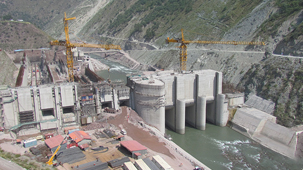
- What Are the Applications of SDA Bolts in Hydropower Stations?
- Time:2025-08-21From:This Site
- Learn how self-drilling anchor bolts enhance slope stability, tunnel support, and dam reinforcement in complex geological conditions at hydropower stations. Optimize hydropower projects with efficient, cost-effective, and eco-friendly solutions.
- View details
-
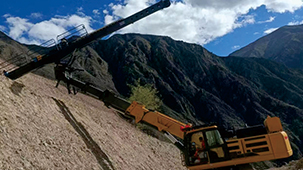
- Slope Stabilization with SDA Bolts: Benefits & Applications
- Time:2025-08-19From:This Site
- Discover how self-drilling anchor bolts (SDA bolts) provide superior slope stabilization for highways, railways, and tunnels. Learn their key benefits, installation process, and real-world applications in loose or collapsible soils.
- View details
-
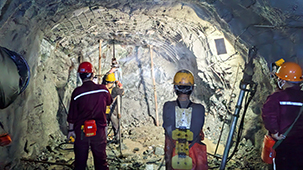
- How Self-Drilling Rock Bolts Enhance Tunnel Support in Fractured Rock?
- Time:2025-08-15From:This Site
- Discover how self-drilling rock bolts enhance tunnel support in fractured rock. Learn their benefits, installation steps, and real-world applications for safe, efficient tunneling.
- View details
-
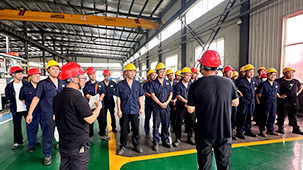
- Sinorock 2025 Quality Month | Strengthening Quality Foundations, Empowering Product Excellence
- Time:2025-08-13From:This Site
- Sinorock’s 2025 Quality Month, themed “Strengthening Quality Foundations, Empowering Product Excellence,” successfully concluded, reinforcing our commitment to superior product quality.
- View details
-

- Sinorock Safety Month 2025 | Everyone Speaks Safety, Everyone Can Respond
- Time:2025-07-03From:This Site
- Sinorock Safety Month 2025, centered on the theme "Everyone Speaks Safety, Everyone Can Respond - Spot Workplace Hazards," has wrapped up successfully!
- View details
-
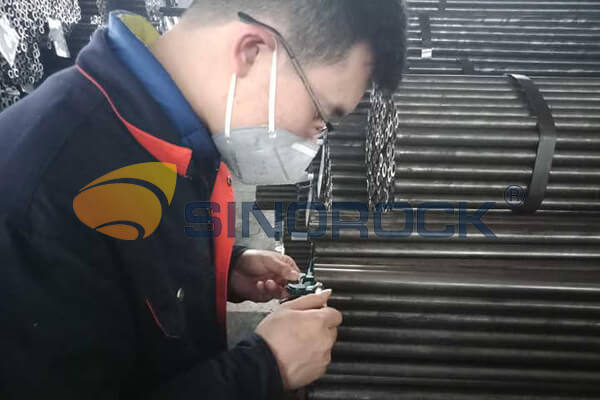
- Quality Control: the Vital Factor of A SDA Bolt Factory
- Time:2025-01-09From:This Site
- Sinorock’s comprehensive quality control system, from supplier management to outgoing inspections, ensuring the highest standards for self-drilling anchor bolts in construction.
- View details
-
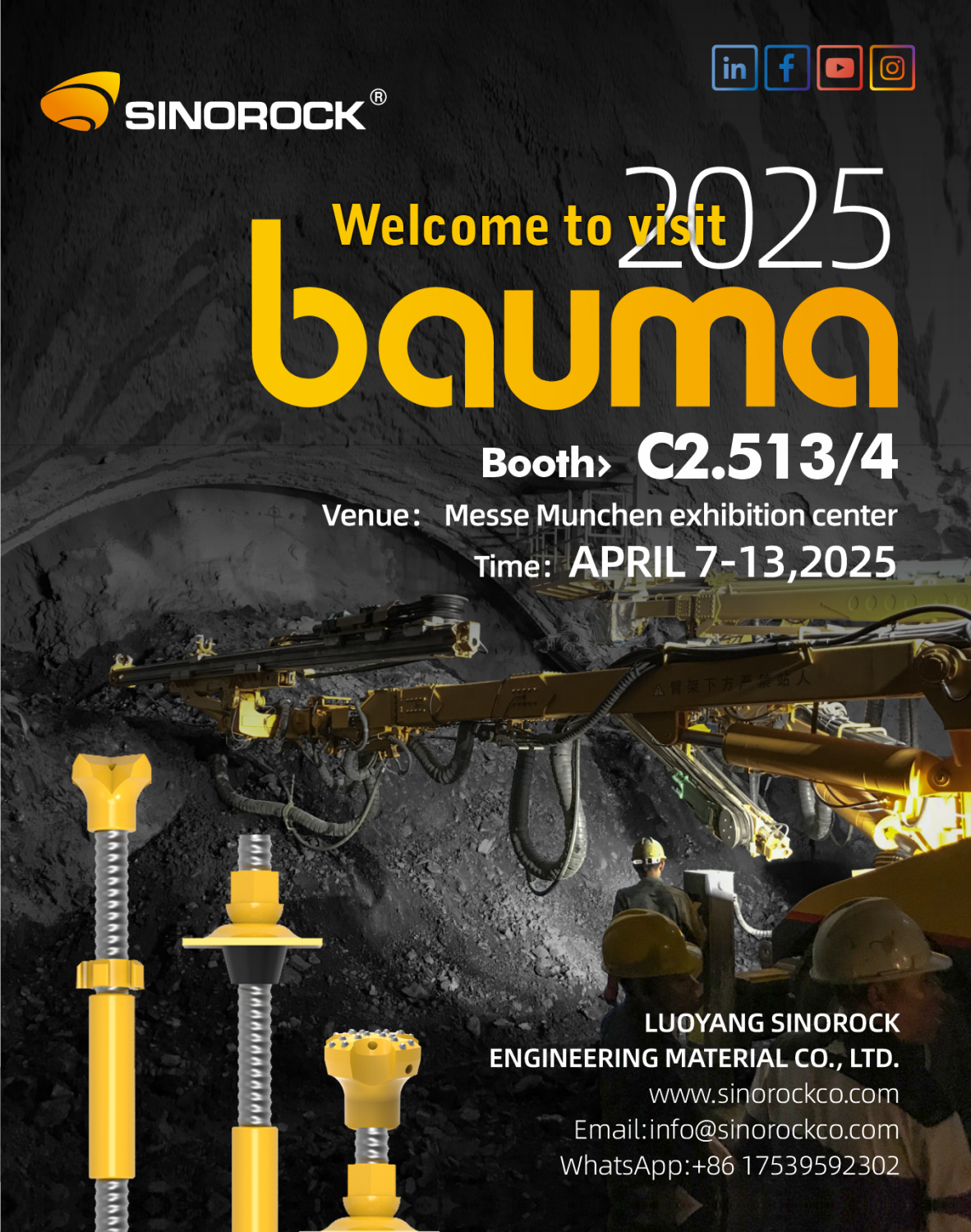
- Sinorock Invites You to Explore Proven Self-Drilling Anchor Bolt Solutions at bauma 2025
- Time:2025-03-07From:This Site
- From April 7–13, 2025, explore Sinorock’s Self-drilling anchor bolt solution at Booth C2.513/4 in Hall C2 of the Messe München Exhibition Center (Munich, Germany).
- View details
-
.jpg)
- SINOROCK to Attend EXPOMINA PERÚ 2024 in Lima, Peru
- Time:2024-08-10From:This Site
- Sinorock to Attend EXPOMINA PERÚ 2024 in Lima, Peru
- View details
-
.jpg)
- SINOROCK to Participate in MINING AND METALS CENTRAL ASIA 2024
- Time:2024-08-08From:This Site
- SINOROCK to Participate in MINING AND METALS CENTRAL ASIA 2024
- View details
 Download
Download 


